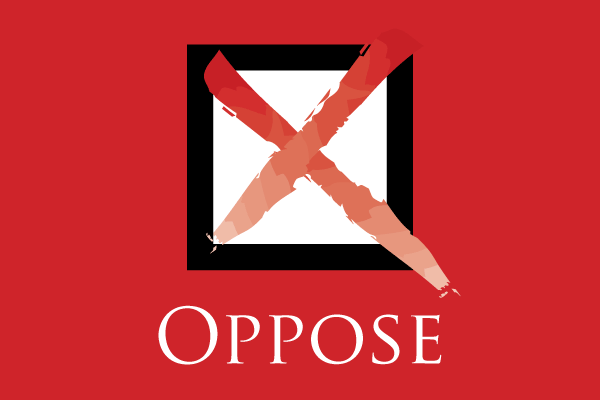CalChamber policy advocates are continuing end-of-session pressure to minimize potential damage from harmful legislative measures as they head to the Assembly and Senate floors for final votes.
In the final week of the legislative session, these priority bills are front and center of CalChamber’s advocacy efforts:
• SB 399 (Wahab; D-Hayward) Even with amendments adopted by the Assembly Appropriations Committee, SB 399 remains deeply flawed. The bill chills employer speech regarding religious and political matters, including unionization. It is likely unconstitutional under the First Amendment and preempted by the National Labor Relations Act. Job Killer 2023
• SB 1047 (Wiener; D-San Francisco) Requires frontier AI developers to make a “positive safety determination” before initiating training of a covered model, among other things, subject to harsh penalties that include criminal penalties. Creates significant uncertainty for businesses due to vague, overbroad, impractical, and at times infeasible, standards, requirements, and definitions. Focuses almost exclusively on creating developer liability for failing to foresee and block any and all conceivable uses of a model that might do harm — even if a third party abuses the model. As a consequence of these flaws, the proposal deters open-source development, undermines technological innovation and our economy. It also imposes unreasonable requirements on operators of computing clusters, including a requirement to predict if a prospective customer “intends to utilize the computing cluster to deploy a covered model” and to implement a “kill switch” to enact a full shutdown in the event of an emergency. Establishes a totally new regulatory body, the “Frontier Model Division,” within the Department of Technology, with an ambiguous and ambitious preview.
• SB 1446 (Smallwood-Cuevas; D-Los Angeles) Use of Technology in Grocery and Retail Stores. Overly prescriptive mandate narrowing the use of self-checkout stations that will frustrate customers and increase costs to retailers and requires stores to notify all workers and the public any time they choose to utilize new technology. Has been assigned to the Assembly Rules Committee to allow the bill’s sponsors to work on changes.
• AB 3211 (Wicks; D-Oakland) AI Watermarks. Places very prescriptive and technologically infeasible requirements on AI developers, large online platforms and camera/recording device manufacturers to incorporate a brand-new technology that is still developing. What this technology is currently capable of changes basically every month. For example, just a couple months ago, there wasn’t a program that can watermark text, making the bill’s requirements to do so impossible to comply with. Currently, one company is seemingly closer to having that technology, but the technology is not yet fully reliable, raising serious competition concerns around entrenching market leaders. When violations invariably occur, companies face significant penalties under this bill.
• AB 2481 (Lowenthal; D-Long Beach) Youth Social Media Protection Act. Requires “large social media platforms” to create a process to verify an expansive list of individuals as “verified reporters,” including school principals and counselors, among others, which will result in over 146,000 verified reporters,” each of which can make a report of a “social media related threat” or a violation of the platform’s terms of service that in their opinion poses a “severe risk” to the health and safety of a minor. A “social media related threat” is content that promotes, incites, facilitates, or perpetuates any one of 15 problems, many of which are entirely subjective (e.g. suicide, cyberbullying, harassment, academic dishonesty). Depending on the size of a platform, a platform must then respond to any report by a non-verified reporter within 10–21 days or, if the report is submitted by a verified reporter, within 24–72 hours. Violations are subject to a private right of action by any person making a report, or unable to make a report, in violation of the bill for relief, including statutory damages of up to $10,000 per violation.
• AB 1008 (Bauer-Kahan; D-Orinda) Public Records Access. Impedes free flow of information in violation of the First Amendment by illogically basing access to public information on the method and technology used to gain access to the information.
• AB 3129 (Wood; D-Santa Rosa) Stifles Free Market Transactions for Health Entities. Requires private investors to obtain the consent of the California Attorney General before acquiring or effecting a change of control with respect to certain health care entities.
The California Chamber of Commerce is the largest, broad-based business advocate to government in California, working at the state and federal levels to influence government actions affecting all California business. As a not-for-profit, we leverage our front-line knowledge of laws and regulations to provide affordable and easy-to-use compliance products and services.



















